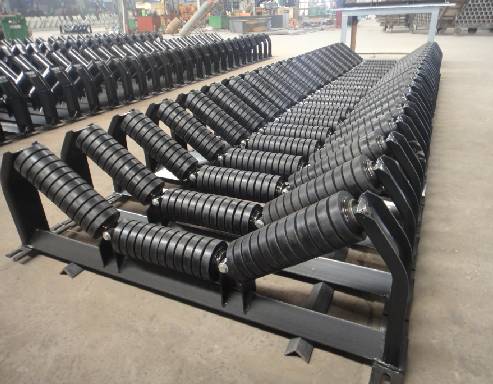 Afrikaans
Afrikaans  Albanian
Albanian  Amharic
Amharic  Arabic
Arabic  Armenian
Armenian  Azerbaijani
Azerbaijani  Basque
Basque  Belarusian
Belarusian  Bengali
Bengali  Bosnian
Bosnian  Bulgarian
Bulgarian  Catalan
Catalan  Cebuano
Cebuano  Corsican
Corsican  Croatian
Croatian  Czech
Czech  Danish
Danish  Dutch
Dutch  English
English  Esperanto
Esperanto  Estonian
Estonian  Finnish
Finnish  French
French  Frisian
Frisian  Galician
Galician  Georgian
Georgian  German
German  Greek
Greek  Gujarati
Gujarati  Haitian Creole
Haitian Creole  hausa
hausa  hawaiian
hawaiian  Hebrew
Hebrew  Hindi
Hindi  Miao
Miao  Hungarian
Hungarian  Icelandic
Icelandic  igbo
igbo  Indonesian
Indonesian  irish
irish  Italian
Italian  Japanese
Japanese  Javanese
Javanese  Kannada
Kannada  kazakh
kazakh  Khmer
Khmer  Rwandese
Rwandese  Korean
Korean  Kurdish
Kurdish  Kyrgyz
Kyrgyz  Lao
Lao  Latin
Latin  Latvian
Latvian  Lithuanian
Lithuanian  Luxembourgish
Luxembourgish  Macedonian
Macedonian  Malgashi
Malgashi  Malay
Malay  Malayalam
Malayalam  Maltese
Maltese  Maori
Maori  Marathi
Marathi  Mongolian
Mongolian  Myanmar
Myanmar  Nepali
Nepali  Norwegian
Norwegian  Norwegian
Norwegian  Occitan
Occitan  Pashto
Pashto  Persian
Persian  Polish
Polish  Portuguese
Portuguese  Punjabi
Punjabi  Romanian
Romanian  Russian
Russian  Samoan
Samoan  Scottish Gaelic
Scottish Gaelic  Serbian
Serbian  Sesotho
Sesotho  Shona
Shona  Sindhi
Sindhi  Sinhala
Sinhala  Slovak
Slovak  Slovenian
Slovenian  Somali
Somali  Spanish
Spanish  Sundanese
Sundanese  Swahili
Swahili  Swedish
Swedish  Tagalog
Tagalog  Tajik
Tajik  Tamil
Tamil  Tatar
Tatar  Telugu
Telugu  Thai
Thai  Turkish
Turkish  Turkmen
Turkmen  Ukrainian
Ukrainian  Urdu
Urdu  Uighur
Uighur  Uzbek
Uzbek  Vietnamese
Vietnamese  Welsh
Welsh  Bantu
Bantu  Yiddish
Yiddish  Yoruba
Yoruba  Zulu
Zulu Understanding the Applications and Benefits of PU Conveyor Rollers in Material Handling
Understanding the Importance of PU Conveyor Rollers
In the realm of material handling and industrial processes, conveyor systems play a crucial role in transferring goods efficiently across various stages of production and packaging. Among the key components of these conveyor systems are the rollers, which facilitate the smooth movement of materials. One type of roller that has gained popularity in recent years is the polyurethane (PU) conveyor roller. This article explores the significance, advantages, and applications of PU conveyor rollers.
What Are PU Conveyor Rollers?
PU conveyor rollers are specialized components designed for conveyor systems, made from polyurethane, a versatile and durable polymer. These rollers serve the same basic function as traditional rollers, which is to support and transport goods along the conveyor belt. However, the material properties of polyurethane significantly enhance their performance and longevity.
Advantages of PU Conveyor Rollers
1. Durability One of the primary benefits of PU conveyor rollers is their durability. Polyurethane is known for its excellent abrasion resistance, which means that these rollers can withstand wear and tear better than their rubber or plastic counterparts. This leads to a longer lifespan and reduced maintenance costs.
2. Load Capacity PU rollers are capable of handling heavy loads without deforming. The material's elasticity ensures that it can conform to the load while evenly distributing weight, minimizing the risk of damage to both the roller and the products being transported.
3. Low Noise Levels Unlike metal rollers, PU rollers operate with much lower noise levels due to the softer surface of polyurethane. This is particularly advantageous in environments where noise reduction is a priority, contributing to a more pleasant working atmosphere.
4. Chemical Resistance Polyurethane exhibits strong resistance to a variety of chemicals, oils, and solvents. This makes PU conveyor rollers suitable for use in industries such as food processing, pharmaceuticals, and chemicals, where exposure to harsh substances is common.
5. Static and Dynamic Performance PU rollers provide excellent grip and traction, which improves the static and dynamic performance of conveyor systems. This is especially important in applications where slip or misalignment could lead to operational inefficiencies or safety hazards.
pu conveyor roller

6. Customizability PU conveyor rollers can be manufactured in various sizes, shapes, and hardness levels to meet specific requirements. This adaptability makes them suitable for a wide range of applications across different industries.
Applications of PU Conveyor Rollers
The versatility of PU conveyor rollers allows them to be employed across a multitude of industries. Here are some common applications
- Food Industry In food processing plants, PU rollers are used due to their resistance to bacteria and ease of cleaning. They help in conveying packaged and un-packaged food items without contamination.
- Packaging PU rollers are ideal for packaging lines where products are transported quickly and efficiently through various stages of packaging. Their durability ensures that they can handle frequent use with minimal maintenance.
- Manufacturing In manufacturing facilities, PU conveyor rollers are used for carrying heavy parts and assemblies along assembly lines. Their robust nature ensures that they can endure the demands of heavy-duty applications.
- Logistics and Warehousing PU rollers are commonly found in logistics centers and warehouses, where they are employed in conveyor systems that facilitate the movement of goods to and from storage areas.
Conclusion
In conclusion, PU conveyor rollers represent a significant advancement in conveyor technology. Their combination of durability, load capacity, chemical resistance, low noise operation, and customizability makes them an optimal choice for diverse applications in various industries. As businesses continue to prioritize efficiency and effectiveness in their material handling processes, the role of PU conveyor rollers is expected to become increasingly important, ensuring smooth operations and reduced downtime.
-
Revolutionizing Conveyor Reliability with Advanced Rubber Lagging PulleysNewsJul.22,2025
-
Powering Precision and Durability with Expert Manufacturers of Conveyor ComponentsNewsJul.22,2025
-
Optimizing Conveyor Systems with Advanced Conveyor AccessoriesNewsJul.22,2025
-
Maximize Conveyor Efficiency with Quality Conveyor Idler PulleysNewsJul.22,2025
-
Future-Proof Your Conveyor System with High-Performance Polyurethane RollerNewsJul.22,2025
-
Driving Efficiency Forward with Quality Idlers and RollersNewsJul.22,2025





























